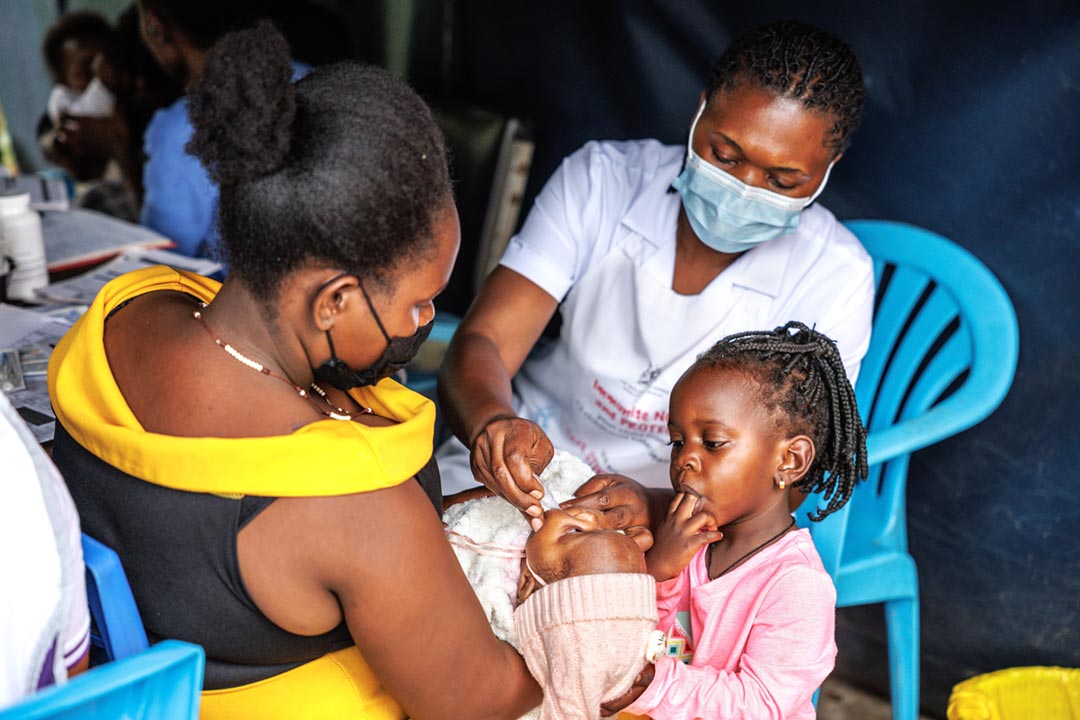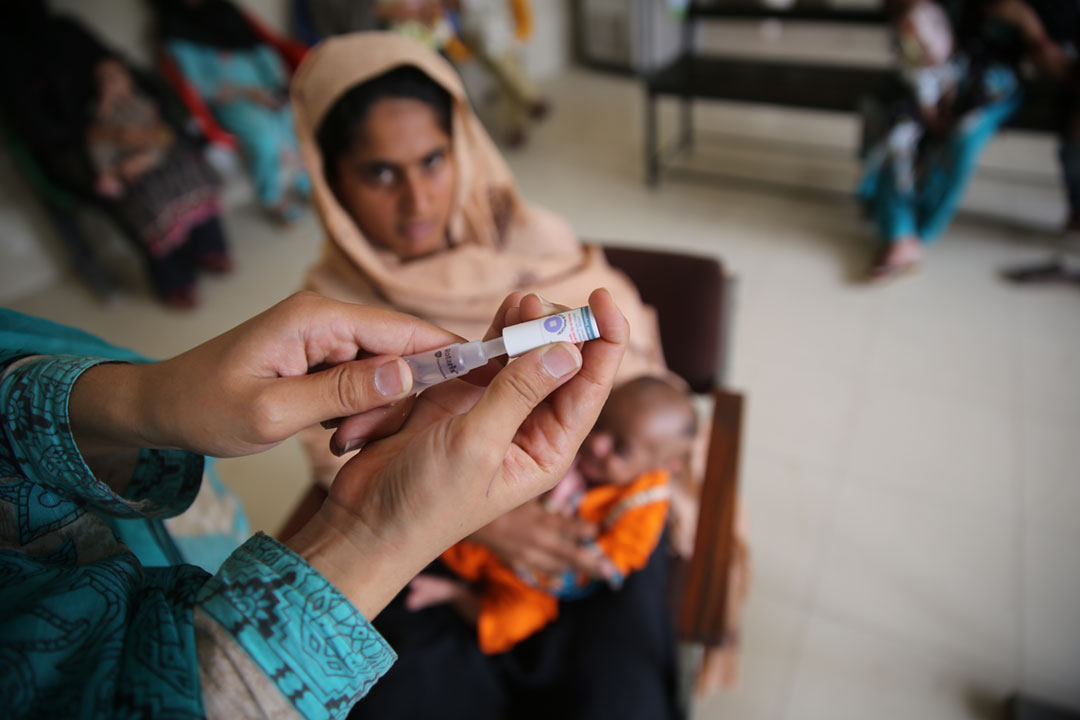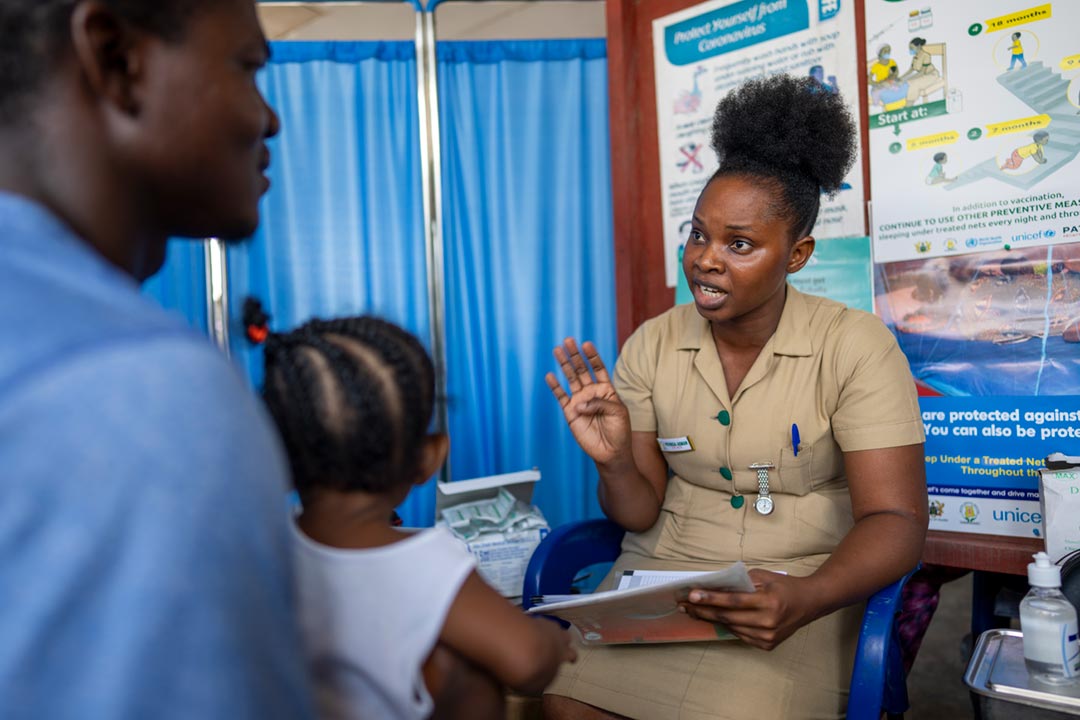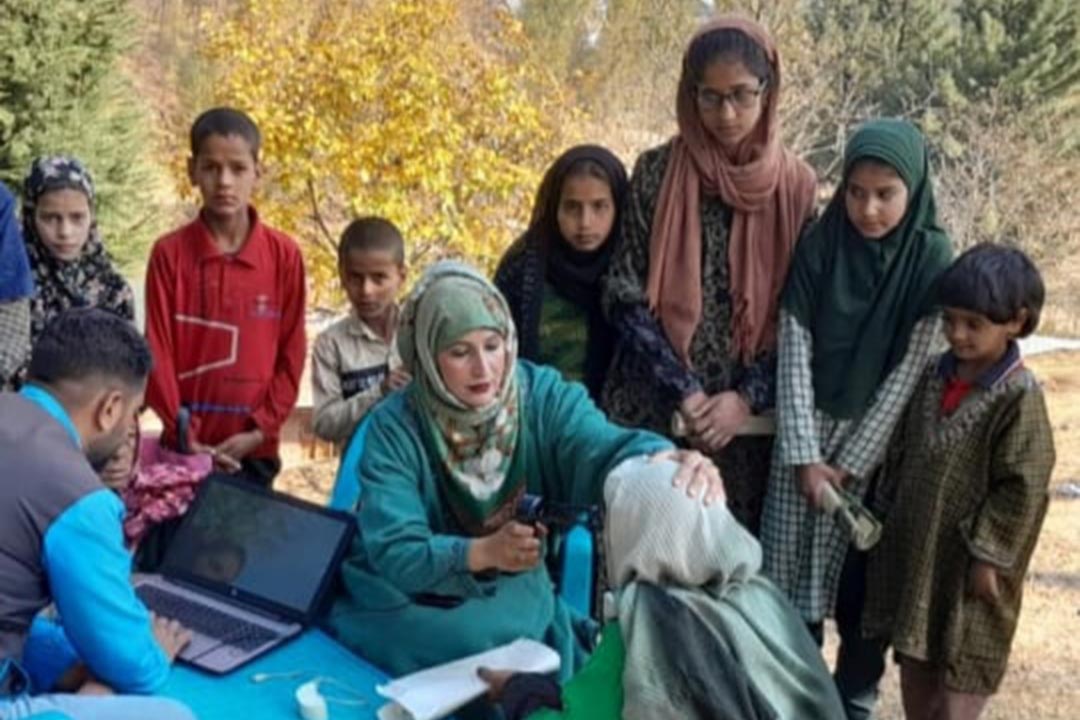How a star’s staged death is shining the spotlight on cervical cancer in India
Was actress Poonam Pandey wrong to fake her own death in order to raise awareness of the vaccine-preventable cancer? India is divided.
- 28 March 2024
- 6 min read
- by Nasir Yousufi

On the warm Friday afternoon of 2 February, 13-year-old Anjali Jain overheard a group of students from a senior class at school discussing the sudden death, from cervical cancer, of actress and internet star Poonam Pandey.
Anjali was startled. It was just a few months ago that she had begun following the 32-year-old actress on Instagram, where now she saw a new post had landed: a black square of mourning, with a few lines of white text announcing the sad news. "This morning is a tough one for us. Deeply saddened to inform you that we have lost our beloved Poonam to cervical cancer," it began.
"No doubt more people are prompted to learn about the disease. But such moves can lead to disbelief, and moreover cause emotional stress on the patients who are already suffering from the same."
– Sheetal Kumari, mother of a cervical cancer victim
All the way back to her family home in a suburb of Pune, a city in western India, Anjali scrolled through web content on cervical cancer. Once there, she went to directly to her elder sister Apoorva, aged 17, to talk about the news. By late evening, the girls' mother had also joined the discussion.
Within just a couple of days, Meenakshi Jain had taken her two girls to one of the city's private hospitals, where they both received the vaccine against human papillomavirus (HPV), the pathogen responsible for the overwhelming majority of cases of cervical cancer.
"For last one or two years, it was somewhere in mind to get my daughter Anjali vaccinated for HPV, but somehow it could not materialise. But as soon as I saw my children getting sensitive to the issue due to a recent viral debate on the disease, I decided to get her vaccinated at a private facility," said Meenakshi.
Pandey, resurrected
Viral indeed: that Friday, news outlets and social media across India gushed out messages of deep shock and sympathy. Poonam Pandey's untimely death from the preventable disease was a tragedy, commentators wrote.
But by Saturday, the high-voltage drama notched up another gear, as the actress announced that she had not died at all: she was not only alive, but also perfectly healthy.
In a series of video posts on Instagram, Pandey explained that she had faked her death to raise awareness among the public of the deadly disease that devours the lives of many tens of thousands of women every year in the country, and hundreds of thousands annually around the world.
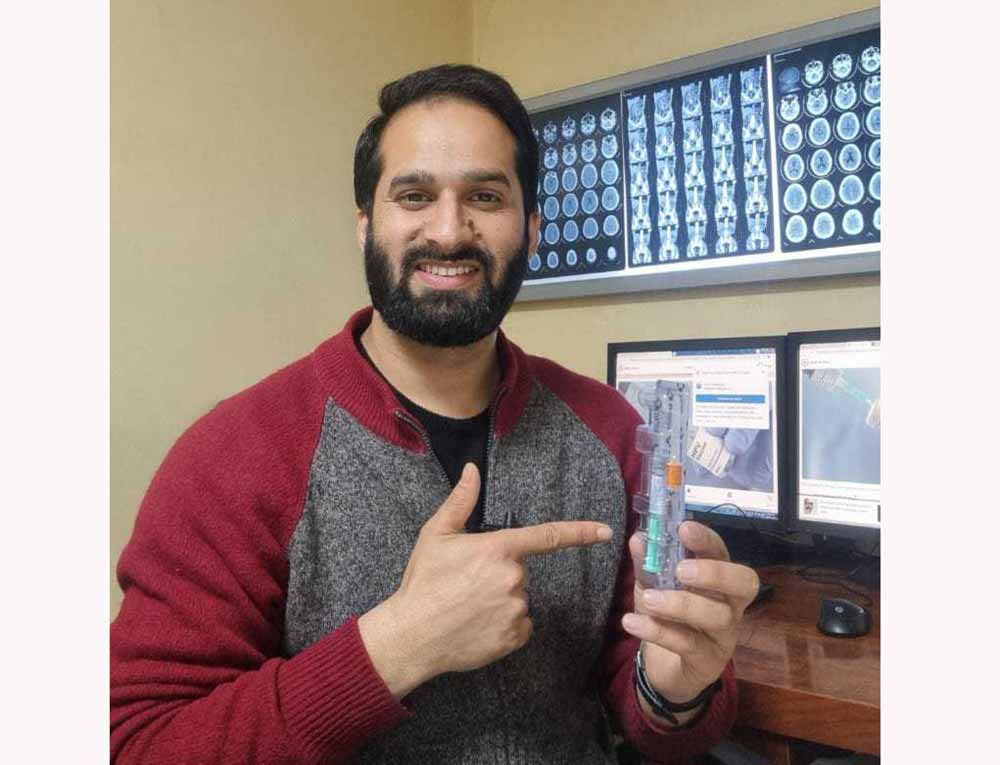
Credit: Nasir Yousufi
"Unfortunately, I can't say that about the hundreds of thousands of women who have lost their lives because of cervical cancer. I'm here to tell you that unlike other cancers, cervical cancer is preventable. All you have to do is get a test, and you have to get HPV vaccine," she said in one of her now-deleted posts.
Spotlight of controversy
Pandey's act has taken India by surprise. People across the country are divided in judgement of the actress's gambit, with some terming her strategy a bold move for a valid social cause, and others deriding it as phony – a mere publicity stunt.
One thing is undeniable. Amid public litigation on the ethics of the actress's move, Pandey's staged death has sparked a wider discussion about cervical cancer.
As the spotlight shines on the deadly disease, related issues have received rare – and for some activists, welcome – focus.
Cervical cancer survivor Awneet Kour from Mohali in Punjab says there is a taboo associated with cervical cancer in society, and it's the right time to talk about that stigma.
"When I was diagnosed with cervical cancer, my parents and relatives supported me to withstand the trauma. After undergoing oncology surgery and subsequent therapies, I am fully recovered now. I think, what is the most important in this period of suffering is a wholehearted support from your family. Women should shun the taboo and get screened for the disease," said Kour.
Sheetal Kumari, the mother of a cervical cancer victim from New Delhi, sees Pandey's staged death as a double-edged sword. "No doubt more people are prompted to learn about the disease. But such moves can lead to disbelief, and moreover cause emotional stress on the patients who are already suffering from the same," she said. "But one thing is clear, we all should know what the deadly disease is, and it can save the important lives."
Vaccination still the best defence
Meanwhile, health experts underscore that cervical cancer is a pressing public health issue in India.
"Leave the actress's move apart: the fact remains that cervical cancer is one of the common cancers found in India. There is a need to launch a massive awareness campaign involving adolescent girls, parents, health workers, schools and colleges regarding the disease and its preventive measures," said Dr Asim Rizvi , an oncologist from Apollo Hospital, New Delhi.
Have you read?
The often-fatal disease, which, according to a fact-sheet released by the HPV Information Centre, killed as many as 77,348 Indian women in 2022, is preventable by vaccination in an estimated 90-plus percent of cases.
Says Dr Monika Pansari, Senior Consultant Surgical Oncology, Fortis Hospital Bengaluru, "Vaccinating adolescent girls becomes paramount. Adolescence is an optimal time for vaccination, ensuring better response rates and long-term protection. It is the best prevention measure available so far against the deadly virus."
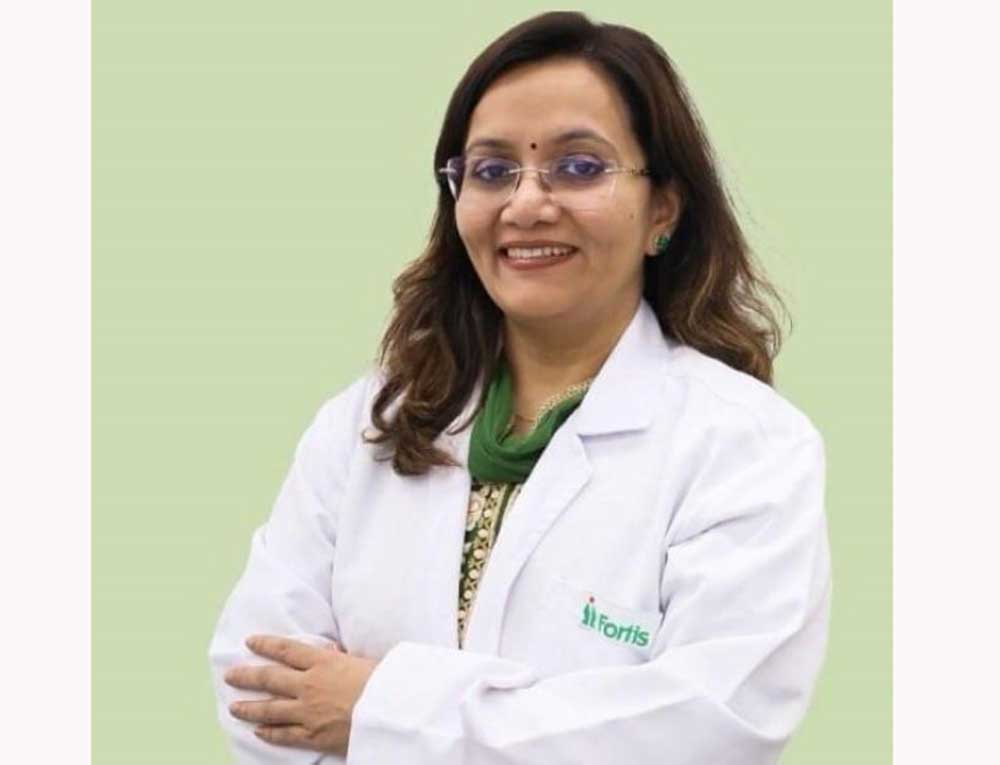
Credit: Nasir Yousufi
Dr Pansari worries the furore surrounding Pandey's campaign isn't doing that mission many favours. "While the recent stunt by a Bollywood actress aimed to raise awareness, it inadvertently shifted the focus away from the core issue of HPV prevention. As a leading surgical oncologist in India, I emphasise the critical importance of awareness in combatting diseases like cervical cancer, which are largely preventable through early detection and vaccination against HPV," she said.
"Leave the actress’s move apart: the fact remains that cervical cancer is one of the common cancers found in India. There is a need to launch a massive awareness campaign involving adolescent girls, parents, health workers, schools and colleges regarding the disease and its preventive measures."
– Dr Asim Rizvi , oncologist, New Delhi
Cervical cancer is the second most common cancer in India. Each year, about 120,000 new cases are diagnosed.
Currently, Cervavac, an Indian-made HPV vaccine costs between 1,400 and 1,600 rupees – about US$ 17-19 – on the private market. Developed by Serum Institute of India, Pune, the vaccine is currently available in some private health facilities throughout the country.
As per the country's National Health Survey 2019–2021, less than 1% of Indian girls are vaccinated against HPV.
The central government has recently set in motion plans to make the HPV vaccine accessible as part of the routine immunisation schedule. Speaking to parliament in February this year, Finance Minister Nirmala Sitharaman said, "Our government will encourage vaccination for girls in the age group of 9 to 14 years for the prevention of cervical cancer."
States including Sikkim, Karnataka, Tamil Nadu, Chattisgarh and Maharashtra have announced free HPV vaccination for school girls in certain districts to pilot a wider roll-out.
More from Nasir Yousufi
Recommended for you



